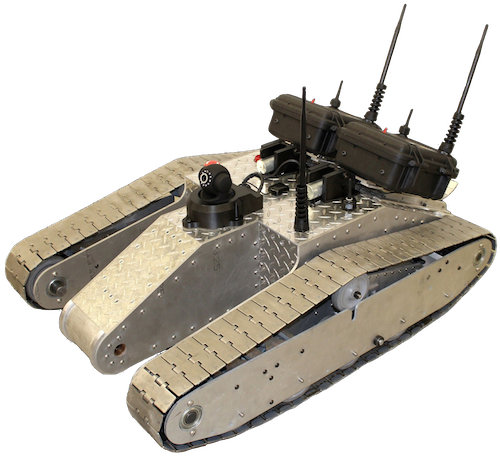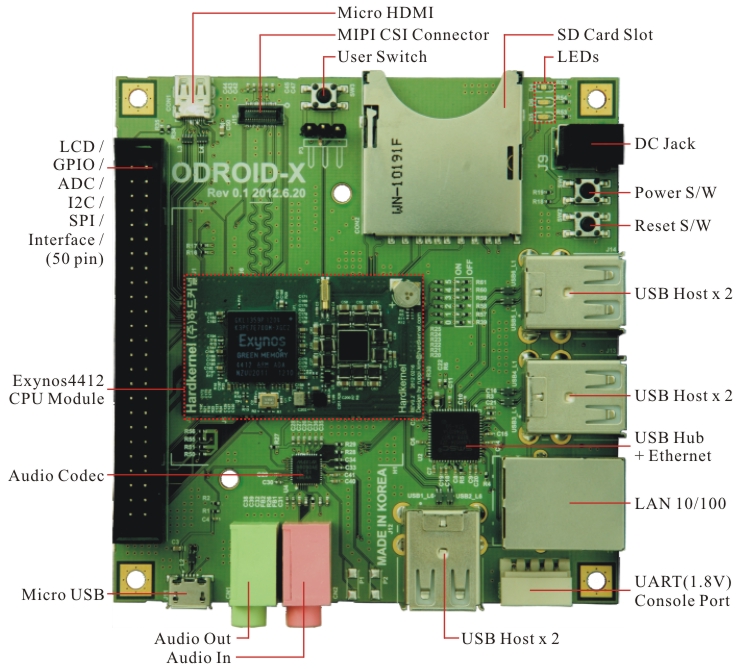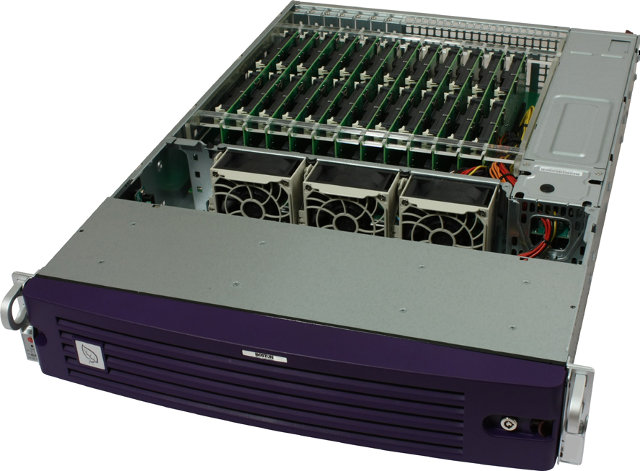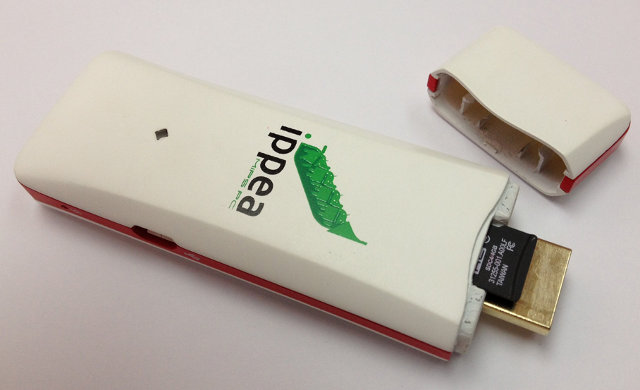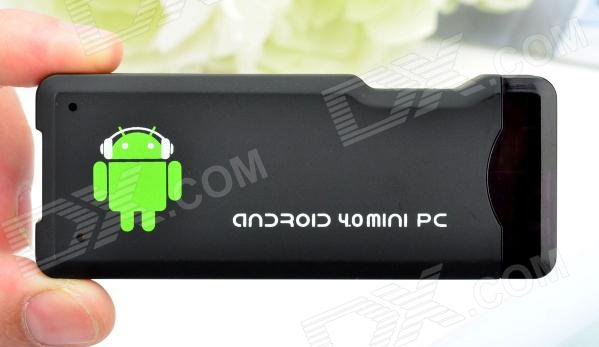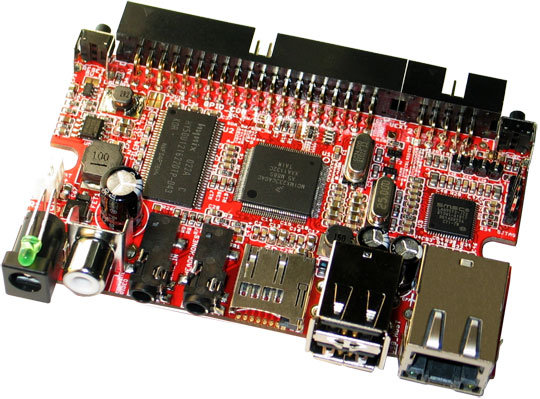ELLCC is a project aiming at creating a multi-target cross compilation environment for embedded systems. which makes use of Clang and the LLVM compiler infrastructure. QEMU is used for cross-platform testing. The project goals are to implement the following key features: A functional C/C++ compiler based on Clang (ecc) Multi-target support: ARM, i386, Microblaze, Mips, Nios2, PowerPC, PowerPC64, Sparc and X86_64 Multi-OS support: Linux, Standalone, … A complete test environment that allows automatic unit and integration testing of the run-time environment and complete executables. Support of a wide variety of target processors from armv4 to armv7, several mips cores, i386, and more. The project is still being developed, and ELLCC is in a pre-release state. ELLCC is composed of the following components: ecc – The ELLCC C/C++ compiler, a single executable with gcc compatible options. binutils – The GNU binutils package. libecc – The C standard library based on the musl standard […]
WiFi Tank Based on EEE PC, Arduino, Ubuntu and Node.js
Eight computer and electrical engineers built a WiFi Tank (Node.js robot) as part of a senior design project at Northeastern University, in Boston, Massachusetts. The robot brain is an EEE PC running Ubuntu, together with an Arduino board and is programmed using node.js. Each tank is equipped with a camera and 2 customized Wi-Fi repeaters (which it can drop it extend range), and it’s targeted at military operations or disaster-affected areas where network infrastructure is not available. Here are the key characteristics of this robot Robot controlled over WiFi 102 cm long, 71 cm wide, 41 cm tall, about 68 kg. Custom-built (except for treads) out of aluminum Range: 1 km with one on-board router and two droppable long-range repeater modules Running time: ~12 hours On-board webcam with microphone, night vision, pan and tilt On-board GPS for location tracking Custom-made remote user interface, works on any device with a web […]
ACE CoSy Compiler Framework Outperforms LLVM by up to 25% for ARM9 processors
ACE (Associated Compiler Experts) announced that their 2012 CoSy compiler development system delivers better performance than the latest LLVM 3.0 compiler on ARM9 processors. Using an ARM9 processor as reference, CoSy compiler framework (2012) shows more than 15% performance improvement using Livermore benchmark loops and 25% in MiBench against LLVM 3.0. The CoSy compiler framework is also more than 7% ahead of LLVM on the EEMBC CoreMark benchmark. The company explains this feat by the use of “CoSy’s unique flexible phase ordering of cutting-edge code optimizations and the addition of new CoSy features” such as compile-time code generator feedback injected into optimization algorithms in order to augment realistic and accurate decision making in architecture-independent optimizations. ACE did not publish the benchmark results publicly, and I could not find any reference to “cosy” or “ace” in EEMBC Coremark database, so I could not check those results myself. CoSy Compiler Framework is […]
HardKernel ODroid-X: Low Cost Exynos 4412 Quad Core Cortex A9 Development Board
HardKernel unveiled the ODROID-X development board based on Samsung Exynos 4412 quad-core ARM Cortex-A9 with quad core Mali-400 GPU, 1 GB Low Power DDR2 and storage is done via SD card and/or eMMC flash. Here are ODROID-X development board specifications: Processor Samsung Exynos4412 Cortex-A9 Quad Core 1.4Ghz with 1MB L2 cache Memory 1024MB(1GB) LP-DDR2 800MB/s data rate GPU Quad Core Mali-400 Video supports 1080p via HDMI cable (H.264+AAC based MP4 container format) Video Out micro HDMI connector / RGB-24bit LCD interface port Audio Standard 3.5mm headphone jack and microphone jack HDMI SPDIF LAN 10/100Mbps Ethernet with RJ-45 Jack (Auto-MDIX support) USB2.0 Host High speed standard A type connector x 6 ports USB2.0 Device ADB/Mass storage(Micro USB) UART System console monitoring for development (1.8volt interface) IO PORTs 50pin IO expansion port for LCD/I2C/UART/SPI/ADC/GPIO interfaces Display (Option) HDMI monitor / LCD panel with RGB or LVDS interface Storage (Option) Full size SDHC […]
Boston Ships Viridis ARM Server Based on Calxeda EnergyCore Cortex A9 SoC
At the end of 2011, Boston, a British IT company, announced plans for an ARM server based on Calxeda Quad Core Cortex A9 Server-on-Chip, and now the company recently announced they started to ship the server (called Viridis) to their first customers. We now have further details about the server including the key features: Ten times the performance at the same power in the same space Cut energy and space by 90% Easily scalable to thousands of nodes 48 SoC devices delivered across 12 Calxeda EnergyCard modules Each EnergyCore SoC contains an ARM quadcore processing unit, providing a total of 192 cores per 2U enclosure Low power consumption: <300W with each SoC consuming between 0.5 to 5W depending on the load. Up to 24 SATA HDDs or SSD devices Up to 192GB of RAM per 2U enclosure A Calxeda EnergyCard (pictured below) features 4 Calxeda EnergyCore ECX-1000 SoC which can […]
iPPea TV Android 4.0.3 HDMI Stick Based on Ingenic JZ4770 (MIPS) Sells for 50 USD
iPPea Inc announced iPPea TV, an Android 4.0 dongle based on Ingenic JZ4770 MIPS SoC that “brings the ‘smart’ Android experience to any HDMI-enabled DTV for $50 US”. This is the first MIPS based Android mini PC that I’ve seem among all the ARM based floating around. Here are iPPea TV specifications: Ingenic JZ4770 applications processor (MIPS-Based XBurst CPU) @ 1.2 GHz. 2GB storage with support for up to 32 GB external storage via a microSD slot. 512 MB of DDR2 RAM HDMI ouput (up to 1080p) 802.11b/g/n Wifi USB 2.0 port and micro USB 2.0 OTG port Video format – AVI,MKV(XVID/px/H.264),MOV,TS,M2TS, RM/RMVB,FLV,3GP,MPEG,DAT,MP4 Audio format – AAC, AAC+, eAAC+, AMR-NB, AMR-WB, QCP, MP3, WMA, WAV, MIDI, M4A Picture format – GIF, BMP, JPEG, PNG Ebook format: PDF,EPUB,HTML,TXT Dimensions – PCB: 80 mm x 20mm x 6.5 mm | mini PC: As small as 95.5 mm x 31.5 mm x 12 […]
72.90 USD AK802 Android Mini PC with AllWinner A10 and 1GB RAM
No, it’s not a typo in the title, and I did not mean to write “MK802”, but a company (which does not appear to be Rikomagic) released a product called AK802 which looks very similar (not to say exactly) the same, but comes with 1GB by default. Here are the specifications of the device partially taken from Dealextreme, so there must be an error somewhere, we just need to find out where ;). CPU AllWinner A10 @ 1.5GHz + Mali 400 GPU Memory 1 GB RAM Storage 4 GB Flash microSD slot (Up to 32 GB) Connectivity WiFi 802.11b/g USB micro USB 2.0/OTG port USB 2.0 Host port Video output HDMI (up to 2160p) Video Codecs & Containers WMV, ASF, MP4, 3GP, 3G2M4V, AVI, MJPEG, RV10, DivX/VC-1, MPEG-2, MPEG-4, H.263, H.264/1280*720P HD 30 fps, 1080P/720*480 D1 30fps Audio Codecs AAC, AAC+, eAAC+, AMR-NB, AMR-WB, QCP, MP3, WMA, WAV, MIDI, M4A […]
Olimex Offers Up to 50% Discount on OLinuXino Boards to Open Source Developers
Olimex has been providing low cost MCU devkits for many years, and this year they started offering more powerful embedded Linux development boards called OLinuXino. The first family (iMX233-OLinuXino) is based on Freescale i.MX233 ARM9 processor @ 454 Mhz and comes in three form factor: iMX233-OLINUXINO-MAXI – 2x USB host, Ethernet, TV-out, GPIOs, SD-CARD, Audio-In, Audio-Out, UEXT – 44.95 Euros. iMX233-OLINUXINO-MINI – 3x USB host, TV-out, GPIOs, SD-CARD, Audio-In, Audio-Out, UEXT – 34.95 Euros iMX233-OLINUXINO-MICRO – USB host, TV-out, GPIOs, SD-CARD, ready for breadboaring – 23.95 Euros They are also working on A13-OLinuXino board featuring AllWinner A13 Cortex A8 processor. To promote their new boards (and reward open source developers – cf comment below), the company company has decided to offer discount to open source developers. The way I understand it: you need to buy a board first, publish the source code somewhere and write about it on your own […]



